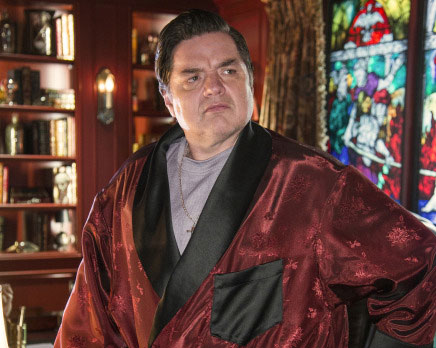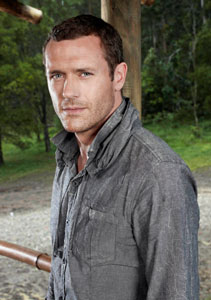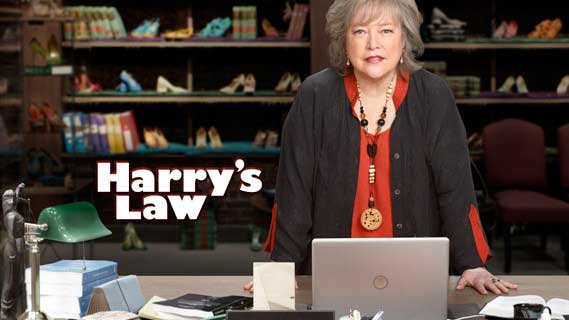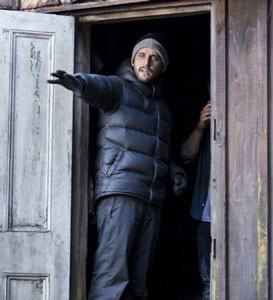Terry Knickerbocker is one of the most sought-after acting coaches around, working with actors like Daniel Craig and Sam Rockwell to help them refine and navigate the complex characters they often play.
This is the second time I’ve talked with him and it’s always a huge treat. This time around, I asked him why some big-name actors are hesitant to admit they use a coach and how his insights and techniques help bring out the best in his clients. He also shares stories on his process of coaching different actors, the importance of tailoring his approach to their needs, and why great performances often come from collaboration.
Whether you’re an aspiring actor or just curious about what goes on behind the scenes, this conversation offers a rare glimpse into the craft of acting and the guidance that helps make it extraordinary.
I was listening to a podcast that had Sam Rockwell as the guest and he mentioned working with you. I feel like up until a few years ago, big named actors never really fessed up to having an acting coach. Am I wrong about that?
Terry Knickerbocker: I think it’s still mostly true. Most actors, I think if they’re smart, have a coach, but many of them don’t tend to publicize that as if it would make them seem weak or something. So, I think that is kind of the culture. When people get awards and thank whoever they thank, it’s rare. Although Sam thanked me when he got an Oscar, and that was nice. And Larry Moss got thanked when someone got a Tony. It happens from time to time, but usually we’re sort of secret for some reason.
I know Hugh Jackman has talked about it several times. I love it. I think it just makes them feel more real.
Terry Knickerbocker: Yeah. And especially in film and television, because there’s usually not much rehearsal time, if any. It’s very helpful to have another set of eyes helping you to put together your performance. Ultimately on the day, you’re the one who’s going to be doing it when they say action but what’s the matter with having a coach? And usually, the actor pays for it out of their pocket. I’ve never been paid by a studio, I’ve always been paid by the actor, which means, besides the 10% to their agent and the other 10% to their manager and whatever else goes to their lawyer, they’re paying me some money as part of what they do to get ready.
Are you like a doctor, on-call whenever someone needs you?
Terry Knickerbocker: Yeah, I mean, to a certain extent. I try to be loyal to my regulars… Sam and I have been working together for 35 years, so we go way back. I remember when he was working on really what was his first, I would say, important job, which was an indie film called Box of Moonlight with John Turturro. I was in Thailand on vacation, there was no cell phones. So, I was in a hotel and beeped into my answering machine in New York and heard a panicked message from him saying, “I need your help.” And I arranged through the time zone differences to call him and talk. I’ve also gotten calls from him on set when he was doing Iron Man 2. I think some scenes shifted and maybe he had a scene with Mickey Rourke, I can’t remember. So of course, those things happen, and changes happen.
There are coaches who work on set. I have a colleague, Julia Crockett, who works with a lot of actors and especially works with Sarah Paulson, and she’s on set. That’s their arrangement. I don’t go on set. I mean, I have been on set, but it’s not my usual thing. So, we like to usually just get the work done ahead of time, and then they have a kind of a blueprint for the performance. And then on the day, that’s the blueprint. Then if things change, things change. But they have a roadmap, so occasionally I’ll get a call in the middle of the night, but not too often. [laughter]
When we first talked back in, I think it was 2021, you mentioned that you had just worked with Daniel Craig for Knives Out 2 and I asked why would he need a coach on a role that he was terrific in?
Terry Knickerbocker: That was my question. I don’t know if I shared that at the time but the first conversation we had, and Daniel’s a friend of Sam’s, that’s how we made that relationship, Sam was good enough to recommend me. We’d actually met years before when he came along on a session Sam was working on with me in person. But he called me for Knives Out 2 and we’ve done three other projects since.
But I said, “I love Knives Out. Our family loves Knives Out. I don’t understand, frankly, why you’re calling me. Maybe I’m about to talk myself out of a job because I’d really enjoy working with you, but why would you need me? You figured it out.” And he said, “Well, I don’t want to repeat myself. Obviously, the character is the character, but I always want to be good, and I think you can help me with that.”
And it must’ve been useful to him because he subsequently called me to work on Macbeth on Broadway, and then this movie Queer that he did with Luca Guadagnino, which is going to premiere next month in Venice, and also Knives Out 3, which he’s currently shooting in London. So that ended up being lovely.
He doesn’t need any help from me to tell him how to do Benoit Blanc. He solved that. But we’re really digging into the moments and the arc and really working with the language. Rian Johnson, his scripts are brilliant and they’re just about perfect. But we’re working on how to just be clear on what the moments are about, what the relationships are about, where the climaxes are, and just an outside eye for how to make it super clear and super compelling and super interesting.
When you guys first start working together on a project, what are the first couple things you do? Does he come in already prepared and knowing the character and what he wants to do with it?
Terry Knickerbocker: He definitely knows the character because that’s a recurring character. But yeah, I think he comes with whatever’s most salient for him about why he thinks he needs help. So, when it was Macbeth, I think it was very much for him about, he had an idea about the sexual nature of Macbeth’s relationship with Lady Macbeth. And he wanted it to be really juicy and have that permeate the perfume and the sort of animal thing that is connected to his ambition and is somehow consummated in their physicality together. He wanted to see if that idea could actually be mapped out from start to finish in all the scenes, not just with her, but with Duncan and Benoit and all the other major characters.
I’ll just say one other thing, I have to figure out the language that works for them. Like Sam happens to have studied with the man who was my teacher and mentor, William Esper. That’s where we met. And William Esper was a protege and a student of Sanford Meisner, you’ve probably heard of the Meisner Technique. So that’s the lineage I’m part of. Sam speaks that language, and so we can use all the inside baseball terminology, like particularizations. So, we say, what’s the particularization, how do you particularize that? Or what’s my emotional preparation for this scene? Or what’s an action that I can do? Whereas a lot of actors just think about objectives and don’t think about actions.
I work with Natasha Lyonne, who’s basically untrained. And I can’t go, “Okay, now we’re going to do Meisner work.” That’s my secret navigating compass but I’m not necessarily making them into Meisner actors. I’m finding the language that works. With Natasha, it’s a lot about associations to other actors in other projects. Like I might say, “Oh, this is like John Cazale in Deer Hunter, and that’ll ring a bell for her.
So, I have to find what’s the thing that is their process rather than making them do my process. And that’s interesting.
How long does it usually take you guys to finish? And when do you know it’s done?
Terry Knickerbocker: I really respect Daniel and I really respect Sam Rockwell a lot. I respect a most of the of actors that I work with. Some of the actors I work with are a little more… A little more scrambled with their time management and so sometimes we don’t always get the work done, and it always feels sort of a day late and a dollar short. Daniel and Sam make the time to work on it until it feels done. We typically work an hour and a half to two-hour sessions, and I think the work on Knives Out happened over a month. We might have two of those a week.
With Sam on American Buffalo on Broadway, we worked on that twice because it was supposed to open the March that COVID hit New York, and then it got postponed for two years, and then it got restarted again. We worked on that for a couple months. He’s doing a movie right now with Gore Verbinski and Juno Temple and a bunch of other really great actors out in South Africa that’s just about wrapping that he’s been working on for about three months. We started working on that October of last year until February of this year, on and off. But we might go through the script twice.
I remember with Knives Out 2, we got through the whole script. We sort of work usually sequentially just to get the story arc correct, even though that’s not how they shoot, they always shoot out a sequence, just to get the story arc correct. And then he said, “I want to go back and work on some of these speeches.” We did the same thing with Queer, which is a big movie written by Justin Kuritzkes who wrote Challengers. There’s a lot of action and then there were these longer speeches that Daniel wanted to work on because they were kind of complicated.
So, it’s wherever the actor is feeling it needs a little bit more love, a little bit more attention. The goal is to make them feel that they’re ready and that they have a solid roadmap of what they’re doing in every moment and what all their relationships are about, so that when they get to set on any given day, they have a plan, which if it were a play, would’ve come out of rehearsal.
How detailed is it? Are you guys going line by line sometimes?
Terry Knickerbocker: 1000%, because you need to know what you’re going to do with every line.
Now, it depends on the timeframe, and it depends if it’s film or television. Television works at a different schedule than film. When I worked with Emmy Rossum on Shameless, we did nine seasons. Obviously, she wasn’t the only character, but she was one of the primary characters. She and Bill Macy were the main characters in that show for nine seasons and her role as Fiona grew and they were doing basically an episode a week. And so, we would do all her scenes in about an hour and a half once a week and rough it out, but not get too caught in the details. If that had been a film, we might have spent three times as long on those scenes.
Have you ever worked with an actor who has an idea of the character, and you just think it’s completely wrong?
Terry Knickerbocker: You know, at the end of the day, they’re hiring me. But they’re also hiring my point of view and my expertise. So often it’s not necessarily about a character, but it might be about an approach to a scene or about the vibe of a scene. And it is all a conversation. I’m not the director, so I don’t get to tell them what to do, and even directors shouldn’t really be telling actors what to do. You hired me, so let’s collaborate together and let’s find a point of meeting. But that’s what happens with actors and directors.
But when it comes to me, I’m not the boss. They’re the client. I can offer what I think, I can make arguments for it in ways that where we’re trying to get on the same page, but I will support what they need, what they want to do. And at the end of the day, we may have to agree to disagree, but I would say usually they’re cooperative because I’m pretty good at script analysis.
I want to ask you about your studio, are you still doing both in person and online classes?
Terry Knickerbocker: We’re not doing too many online classes, but we may bring those back because it may be that for some people, that’s what’s useful if they can’t get to New York. During the pandemic from March of 2020 until summer of 2021, we were exclusively online. And then in the fall of ’21, I think, we came back and in person but with masks for a year. And that was a bit strange.
We have a great voiceover teacher named Andy Roth who used to go to a studio with people and then when COVID hit, he kind of went, “Oh, I can actually teach this much better online and the results are better.” But for the most part, we’re just in person. It works better in person. Things like kissing and dancing are a little bit hard to do online.
I do a lot of coaching online. So that’s very doable. There are some people I’ve coached for years I’ve never met in person.
For more information on Terry Knickerbocker and his studio, click here.




